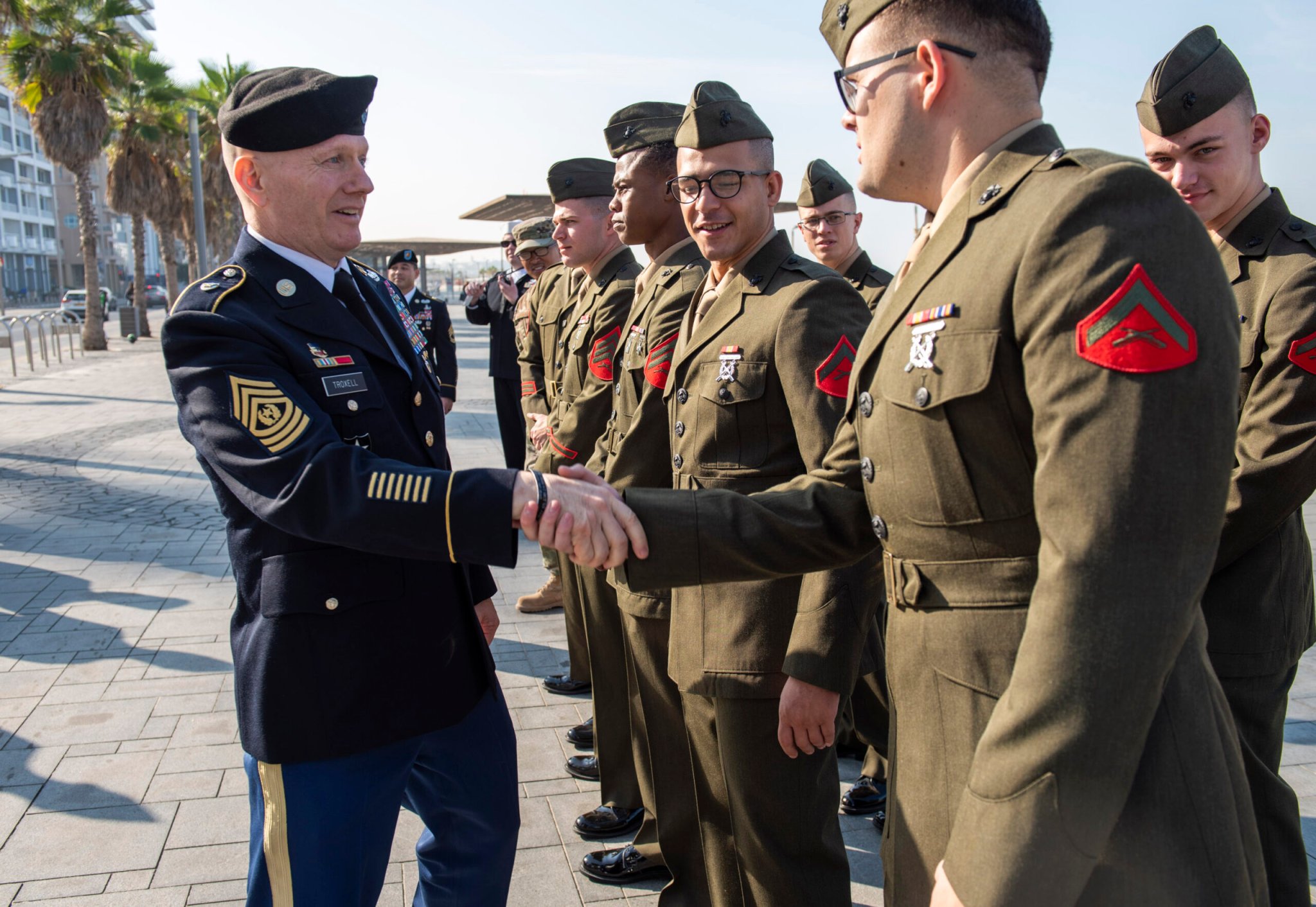

The once Senior Enlisted Advisor to the Chairman of the Joint Chiefs of Staff John Troxell enlisted to serve four years. Instead, he retired after a decorated 38-year career and a lifetime of lessons he wants to share with others.
“I grew up in Davenport, Iowa. I was a mediocre athlete and middle of the road student,” he laughed. “My inspiration came from kids older than me in my neighborhood that had joined the military. I saw them as they came back, how confident they were and how they walked with their head held high.
Wanting to emulate those idols of his childhood, in 1982 Troxell enlisted in the Army. “As Forrest Gump would say, I fit in the military like those round pegs,” he said. Troxell almost left after his first enlistment was over. However, making it into the historic and elite 82nd Airborne at Fort Bragg changed everything.
“All of a sudden, I really found the place that I belonged. I ended up spending 14 years in the 82nd. Jumped into combat with them for Operation Just Cause and Desert Storm. This is what I was meant to do,” he explained.
Making it to the most senior enlisted position didn’t come without its own set of struggles. As he approached the time to hang up his Army uniform, his wife, Sandra, encouraged him to seek out support for his frequent bouts with anger. Troxell said he had boxed up many traumatic events that were wreaking havoc on his personal wellness.
“My PTSD treatment experience has been nothing short of outstanding,” he said. “It is by far the best thing I have done to enhance my quality of life and my relationship with my family and friends.”
Troxell went on to share that his experience with therapy, deep breathing exercises, and refining his coping skills drastically changed his life. He credits seeking treatment with giving him a better life than he’d ever imagined for himself.
Reflecting back, he recognizes how putting certain traumatic events in a box can be a vital tool during a mission, but that approach isn’t something that can work long-term, especially in civilian life. Troxell credits his time in therapy for PTSD as being radically transformative in his own life and is one of the reasons he signed on to be an advisor for Emory Healthcare Veterans Program.
The Emory Healthcare Veterans Program provides evidence-based treatment for post-9/11 veterans and service members struggling with invisible wounds such as PTSD, traumatic brain injury, military sexual trauma, anxiety, or depression. The Intensive Outpatient Program (IOP) or traditional outpatient program can be completed in-person at the clinic in Atlanta, Georgia or via telehealth in participating states.
Service members and veterans who have served one day post-9/11 are eligible for this no-cost, confidential treatment, regardless of location, discharge status, deployment history, or length of service.
The two-week IOP reduces symptoms, promotes health and wellbeing, and improves relationships and social functioning. Participants receive as much therapy in two weeks as they would typically get in a year, learn about yoga, medications, sleep and wellness, healthy coping skills, and communication techniques—especially with regard to partners, family, and friends. Each participant receives a customized care plan that is based on their unique circumstances and goals. All treatment, lodging, transportation, meals, and activities are provided at no cost to warriors or their families.
These days, Troxell is living it up and feels better than he ever has in his 58 years, thanks to successful PTSD treatment. “I love spending time with my wife, kids, and grandkids. People would be surprised to hear that I am a TV Land junkie. I love watching old episodes of shows like MASH and Gilligan’s Island. I’m also a huge homebody,” he admitted. Another fact: he sings mean karaoke and prefers punk rock bands like Blink 182.
Troxell has a message of encouragement for veterans who may have invisible wounds and are considering treatment from the Emory Healthcare Veterans Program: DO IT!.
“The world is a great place, and though you’ve got challenges, help is waiting for you. Look at this as your new mission,” Troxell explained. You owe it to yourself to do it right now.”
If you or a loved one are a post-9/11 veteran or service member struggling with invisible wounds, fill out this private form to speak with our veteran care coordinator.
Sponsored by Emory Healthcare.